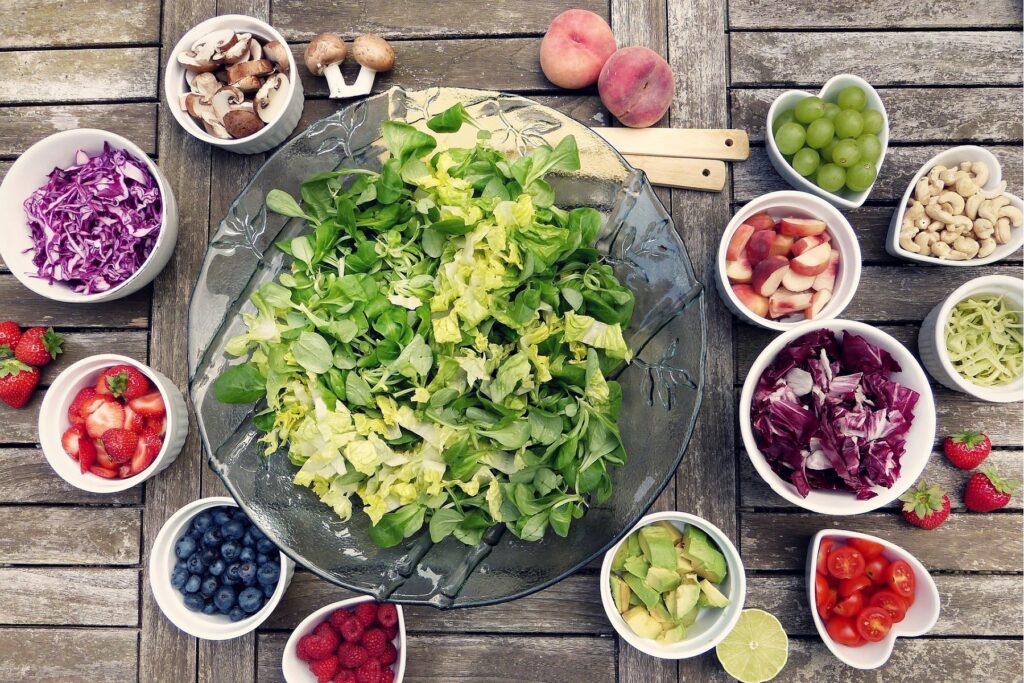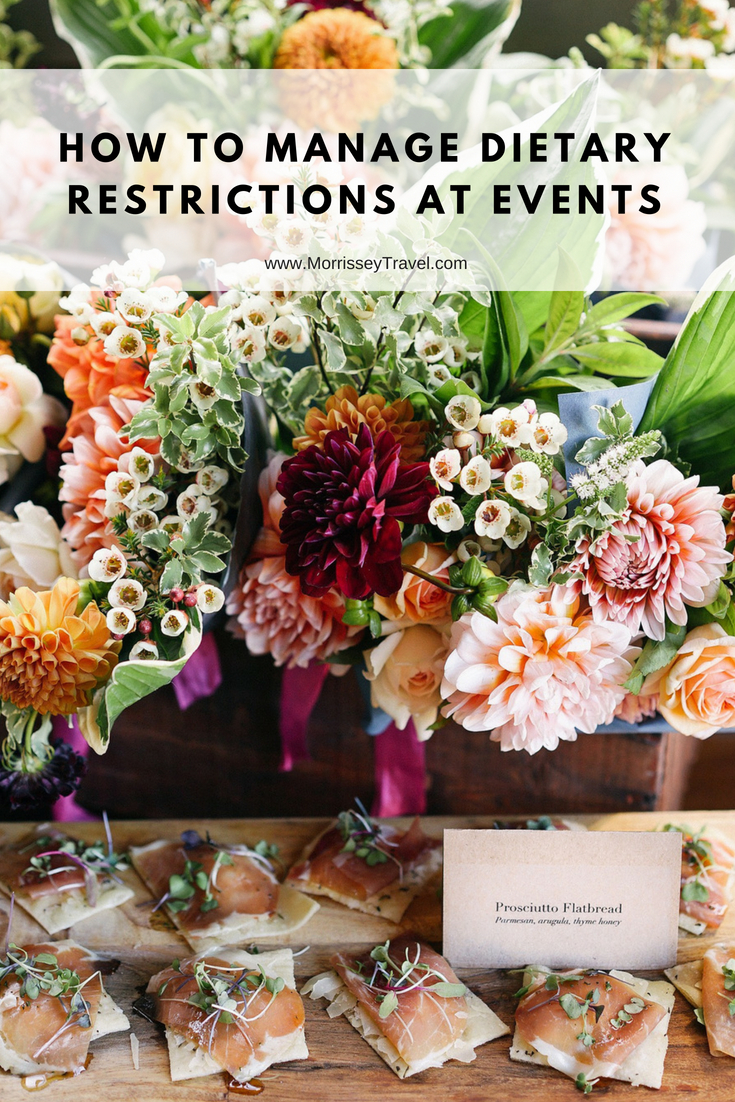Today, there are many different eating requirements and dietary restrictions for meeting planners to take into consideration in regards to Food and Beverage events. One of the best ways to plan for these restrictions is to ensure that foods are presented and separated as much as possible. As an example, for a salad – have the greens tossed together but keep all of the accoutrements separate so that each guest can add what they do and do not want due to preferences and allergies.

Common eating habits and dietary restrictions to be aware of:
Allergies
A wide range of food and beverage allergies exist – from nuts to citrus and everything in between.
Gluten Free
Focused on nuts, vegetables, fruits, and meat, while restricting or eliminating processed grains from the diet.
Keto
High-fat and protein base with low-carbohydrate and sugar intake.
Kosher
Food that is cooked & packaged in a Kosher kitchen which follows Jewish religious laws restricting certain foods from being consumed (e.g. pork and shellfish) or mixed/eaten at the same time (e.g. meat & milk).
A Kosher Vendor can be used to order freshly-made, pre-packaged meals and delivered to a venue that does not keep its own Kosher kitchen. The seal of the packaged meal cannot be opened, this ensures there is no contamination and confirms authenticity.
Lactose-Free
Focused on nuts, fruits, vegetables, and meat – restricting and/or eliminating dairy products
Paleo
Focused on meats, fruits, vegetables, and nuts – restricting and/or eliminating dairy, sugar, and processed grains.
Pescatarian
Primarily a vegetarian that allows fish and seafood.
Raw
Does not eat any food that has been cooked, pasteurized, or processed.
Vegan
Does not eat any animal-based products.
Vegetarian
Does not eat meat but may incorporate eggs, dairy, and honey.
Why planning around dietary restrictions matters
Food and beverages bring people together which is key to the overall success of an event. Therefore, it is important to meet the dietary needs of your guests, no matter the allergy or restriction.
Ways you can best plan for dietary restrictions
Plan the menu strategically
Vegetarian, vegan, and gluten-free restrictions are quite common. Plan to serve a veggie tray with multiple dips and spreads. Additionally, cheese, fruit, and meat plates are also restriction friendly as guests can select which items they prefer while leaving off others. From there, add to the menu knowing there are options available for guests who cannot partake in other main dishes.
Ask your guests
It is best to always ask if there are specific allergies or dietary restrictions that need to be addressed. Save yourself a headache and find out any special requests before your event. Consider adding a dietary or allergy question to your event invitation, survey, or RSVP card. This way, guests can share their specific restrictions before the menu is planned.
Place dietary cards or ingredient lists at food stations
Have the catering team place a card in front of each food station noting which options are dietary friendly (i.e., Vegetarian, Vegan, Gluten Free, etc.). Alternatively, if the full ingredient list is available, place in front of each item so guests can review prior to making their selections. If food is being passed on trays, ensure the catering team is aware of the ingredients so that they are well prepared when guests inquire.

For more tips or assistance planning your next event, contact our office today!

